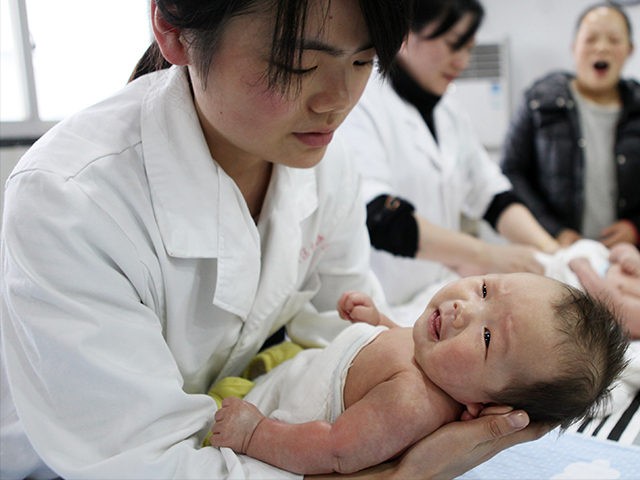The Lancet medical journal has published a glowing report on China’s progress in reproductive health care, which praises the country’s one-child policy while completely ignoring the widespread practice of forced abortions and the ethical problem of micromanaging families’ procreative practices.
This week, “the Lancet Commission on 70 years of reproductive, maternal, newborn, child, and adolescent health (RMNCAH) in China” published its final report, which “describes the country’s achievements and discusses policy and socioeconomic transitions, and their impact on epidemiological and demographic transitions.”
The report, which reads like a piece of propaganda from the Chinese Communist Party (CCP), a-critically lauds the results of policies imposed by China’s communist government without ever questioning their impact on basic human rights and freedoms.
“Women’s reproductive, maternal, newborn, child, and adolescent health (RMNCAH) is the foundation of sustainable development for individuals, families, and societies,” the report declares, adding that since the founding of the People’s Republic of China in 1949, “China has seen remarkable achievements in RMNCAH.”
“China continuously updated laws and policies to protect women’s and children’s health and rights, with initial achievements preceding intensified economic development after 1990,” the report states. “With a top-to-bottom RMNCAH system, China’s centralised government allows systematic implementation of RMNCAH policies, which is crucial to track progress and for accountability in achieving RMNCAH milestones and targets.”
Given the vast size and diversity of the country, “these achievements were particularly impressive,” the report continues, noting that none other than the World Health Organization (WHO) “rated China as one of the top 10 so-called fast-track countries in women’s and children’s health.”
While this progress has been driven by rapid socioeconomic development, “it has also been driven by political will,” the report states. Over the past 70 years, “the political will to focus on RMNCAH has been key to the progress in this area,” it continues.
“Since the foundation of the People’s Republic of China in 1949, the government’s iconic declarations of ‘Women hold up half the sky’ and ‘Children are the future and hope of the motherland’ have not been empty rhetoric,” it declares, “but instead have been supported by strong political commitment and a series of laws and actions prioritising women’s and children’s rights.”
Unsurprisingly, the report was drafted by a team of three people, all of whom are directly tied to China-friendly WHO. The principal author, Elizabeth Mason, is the former director of WHO’s Department of Maternal, Newborn, Child, and Adolescent Health.
To “control overpopulation, severe poverty, and resource shortages,” the CCP enacted its one-child policy in 1980, the report notes, which resulted in manifold benefits.
“Because of fewer pregnancies and births, there was lower maternal morbidity and lower mortality,” it asserts. “This policy objectively accelerated gender equality because of the large number of single daughters who benefited from all household resources.”
The report acknowledges that China’s one-child policy also gave rise to the “overuse” of abortion, adding parenthetically that this included sex-selective abortion, “even though it is illegal.”
The report described how the CCP gradually relaxed the application of the one-child policy, moving toward today’s two-child policy, without ever discussing the ethics of imposing a cap on the number of children a couple may have. The report also fails to address the widespread and well-documented phenomenon of forced abortions and involuntary sterilizations that were a direct result of the one-child policy.
Positive aspects of the one-child policy included the reduction of China’s total fertility rate from 2.9 in 1979 to 1.6 in 2015 “so that the cumulative number of births was reduced by approximately 400 million, which helped to lift 300 million people out of poverty,” the report states.
Furthermore, “women benefited from a smaller number of pregnancies and births, which reduced morbidity and mortality; and family resources were concentrated in fewer children, promoting their healthy growth and development, which especially benefited girls,” it asserts.
The only negative effects of the policy recognized by the report are “the decrease in births, which led to a reduction in the labour force that is necessary for sustained economic growth,” “a large number of sex-selective abortions, resulting in an excess of male neonates and an unbalanced sex ratio” as well as “the so-called 4:2:1 phenomenon, in which many couples were solely responsible for the care of one child and four older adults.”
“Any successes in RMNCAH are attributable to efforts both within and outside health systems. The most notable contributors in China are strong political will to focus on RMNCAH and improvements in gender equity,” the report declares.

COMMENTS
Please let us know if you're having issues with commenting.